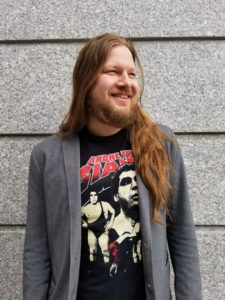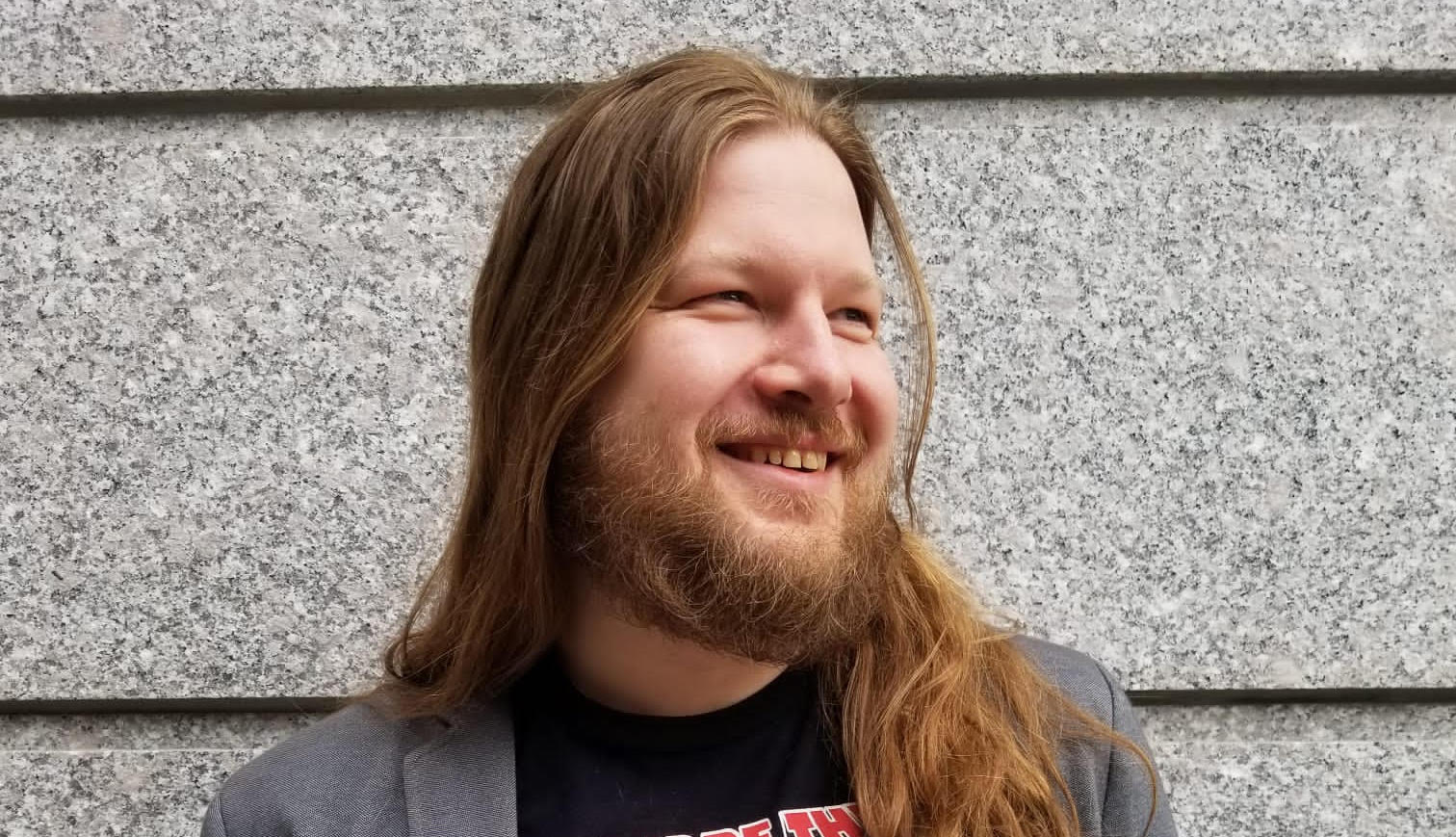What is your area of study/research?
I am Assistant Professor of Philosophy at Mercy College in Dobbs Ferry, NY. My primary areas of interest are in the Philosophy of Psychology, the Metaphysics of Personhood, and most relevantly here, Philosophy in Popular Art and Media, including science fiction, comic books, music, and of course, professional wrestling.
What led to your interest in pro wrestling and how do you approach pro wrestling from your scholarly discipline/field?
I’ve been a very serious fan of wrestling since I was eight years old. My favorite wrestler growing up was Bret Hart, and I really started to obsess over it around when he first won the WWF Championship in 1992. While my interest waned in high school, it picked up in college and grad school, especially in 2004 when I attended my first Wrestlemania and then discovered independent wrestling, most notably Ring of Honor. Wrestling strikes me as having a visceral immediacy that no other form of art of entertainment can match, and it became increasingly clear to me that wrestling was overlooked and understudied as an art form. Beyond that, I became fascinated by the dynamics within the wrestling audience and how what happens in the crowd is related to what happens in the ring. It seems to me that such a public space in which people were encouraged to loudly express their preferences and emotions, in ways that were often in tension with what the purveyors of wrestling intended, has immense potential for political and social transformation. Or at the very least, studying that space could help us understand people’s values and motivations in a way that may not be revealed by studying them in other public contexts.
However, I didn’t really pursue wrestling from an academic perspective until I discovered the PWSA, and saw that a ton of good work was already being done, that there would be a place for academic pro wrestling scholarship and publishing. So far my only published work is an essay for The Agonist, entitled “Beyond Face and Heel: Nietzche’s Agonism and the Pro-Wrestling Spectacle,” looking at wrestling from the perspective of Friedrich Nietzsche’s philosophy, claiming that it is capable of the kind of effect Nietzsche saw as essential to Attic tragedy and that the role tragedy played in Ancient Greek culture is comparable to the effect and cultural role of wrestling in contemporary society. In some talks, I have compared wrestling to other art forms, such as comedy and comic books, as well as tried to understand what is unique to wrestling as an art form, particularly focusing on the constitutive role of the crowd in the wrestling art work itself, and the uniquely symbolic content of wrestling maneuvers themselves, including at the first PWSA WrestlePosium.

Are you currently working on any pro wrestling scholarship/research/public scholarship/media? If so, please tell us about it!
I’m currently co-editing an issue of the Media Studies journal with Alison Levin, which is an outgrowth of a project started by CarrieLynn D. Reinhard, looking at the relationship between mental health and fandom. My own article concerns wrestling, and the extent of its capacity and appropriateness as a therapeutic aid, in the way that Janina Scarlett has demonstrated for super-hero narratives. Briefly, I point out that the live action nature of wrestling presents some wonderful opportunities for identification, reinterpretation, and coping with psychological challenges. It has some toxic and potentially destructive aspects that may or may not be mutable and raises serious concerns for whether it should be introduced to individuals who already have a tenuous grasp on reality and their emotions.
I am also co-host of the Contesting Wrestling podcast, which has been my primary vehicle for conveying my thoughts about wrestling, whether scholarly or otherwise.
Do you bring pro wrestling into any of the classes you teach? How do you find it is received or taken up?
I haven’t brought wrestling into the classroom so far beyond some impromptu examples for philosophical ideas, such as comparing Leibniz’s notion of “pre-established harmony” to the performance of a hurricanrana. A lot of students just kind of laugh it off and I assume they have no idea what I’m talking about. But occasionally there are a few who know about or are even fans of wrestling and they get super excited. Now that I have tenure, I want to attempt to teach a “Philosophy Through Pro-Wrestling” course and hope that enough students register for it. I’ll use Douglas Edwards’ excellent Philosophy Smackdown as a textbook along with a variety of readings from the emerging canon of wrestling scholarship as a way of teaching about classic philosophical issues, but also presenting wrestling itself as an object of philosophical attention. Hopefully it gets over!
What is a piece of pro wrestling scholarship that has been generative for you and that you recommend PWSA members read?
Besides Philosophy Smackdown, reviewed by Kristopher G. Philips in the Pro Wrestling Studies Journal, Lisa Jones’s article “All Caught up in the Kayfabe,” in the Journal of the Philosophy of Sport. And Reinhard and Olson’s Convergent Wrestling anthology is a fantastic primer of scholarship on the definition and contextualization of kayfabe. I find particularly helpful the chapter “Pile-driving the fourth wall: Audience as Participant in CHIKARA Professional Wrestling” by Matthew Wysocki and Joshua Call, which explores the dynamic relationship between audience and spectacle that I am interested in applying in a more general way.
Where might people reach you if they would like to know more about your research?
For those interested in my research, I can be reached via email: babelson@mercy.edu


I am very favorably impressed